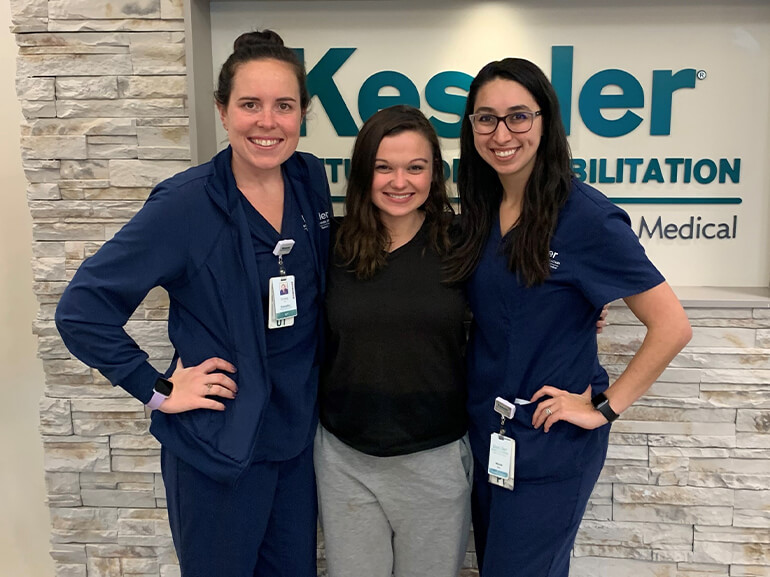Rochelle's story

On Christmas morning, Rochelle Smith was happily watching her five-year old daughter Zoey tear into her presents. Suddenly, Rochelle, a data-entry specialist and artist who also has a two-year old stepson Elijah, began vomiting uncontrollably and soon passed out. Her boyfriend Bo immediately called 9-1-1.
Rochelle was rushed to Inspira Medical Center Mullica Hill, then taken by helicopter to Cooper University Hospital in Camden, New Jersey, which happens to be a regional stroke center. As doctors raced to stabilize her, Rochelle underwent extensive testing, including MRIs, CT scans, angiograms, blood work and a heart ultrasound. The 28-year-old was diagnosed with a rare type of stroke - a left thalamic infarction and bilateral cerebellar hemorrhage - in the area of the brain that helps control coordination and movement.
Despite being unable to walk or use her right arm, Rochelle was optimistic and eager to get home to her children and to work. She chose the specialized stroke rehabilitation program at Kessler Institute in Marlton, noting that “From what I had heard, Kessler would be the right place for me.”
Kessler’s physician-led team – including nurses, physical, occupational and recreation therapists, and other neurorehabilitation experts – carefully assessed her needs, listened to her goals and tailored a multi-disciplinary treatment plan to help her regain her independence.
“Every day, things became easier,” Rochelle recalled. “My therapists taught me what I needed to do to get better and helped restore my confidence.”
Rochelle benefited from a range of hands-on therapies and innovative technologies. In physical therapy, she focused on improving strength, balance, coordination and mobility, using the LiteGait bodyweight-supported system and participating in an aquatic exercise program in the hospital’s heated indoor pool.
Rochelle’s occupational therapists simulated her home environment to teach her the strategies to safely perform daily activities, such as bathing, dressing, preparing meals and caring for her children. She also took part in the stroke program’s fine motor group, practicing typing skills to be able to return to work. Similarly, with the help of the hospital’s recreation therapist, she relearned how to use paint brushes and other tools to pursue her craft.
Kessler’s Peer Mentorship and Stroke Education programs also helped Rochelle connect with other stroke survivors and gain insight as she adjusts to life ahead. Her team encouraged her family’s participation, too. “My boyfriend was here every day and night. He comforted me and eased my stress so I could focus on getting better physically.”
As she progressed, Rochelle hit many milestones, but her proudest moment was to walk without assistance. “It gave me a great sense of independence,” she said, adding that her overall Kessler experience was “unexpectedly amazing. The therapy team made me feel like a loved friend and that made it so much easier.”
Rochelle admits she learned important lessons along the way, not the least of which was “to speak up for myself and get the right care.”
Upon discharge, Rochelle was looking forward to “getting back to my normal day-to-day” and planned to continue to build on the gains she made at Kessler through outpatient rehabilitation.